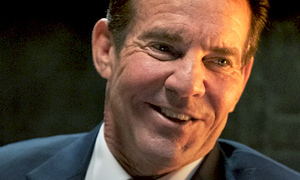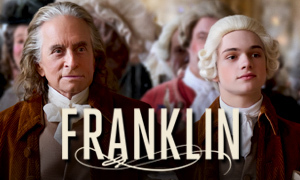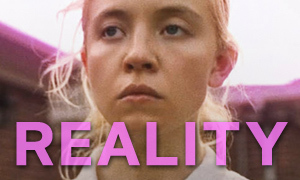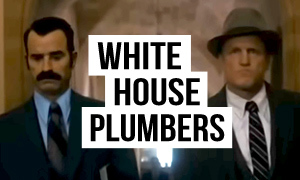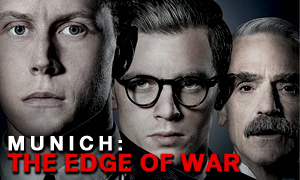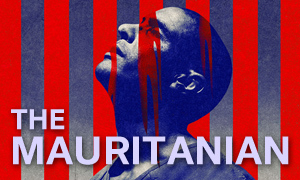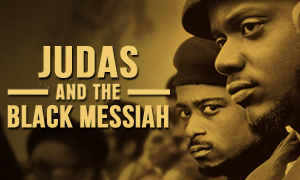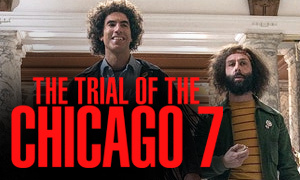Darkest Hour: History vs. Hollywood
| REEL FACE: | REAL FACE: |
Gary Oldman
Born: March 21, 1958 Birthplace: New Cross, London, England, UK | Winston Churchill
Born: November 30, 1874 Birthplace: Woodstock, Oxfordshire, England, UK Death: January 24, 1965, Kensington, London, England, UK (stroke) |
Kristin Scott Thomas
Born: May 24, 1960 Birthplace: Redruth, Cornwall, England, UK | Clementine Churchill
Born: April 1, 1885 Birthplace: Mayfair, London, England, UK Death: December 12, 1977, Knightsbridge, London, England, UK |
Lily James
Born: April 5, 1989 Birthplace: Esher, Surrey, England, UK | Elizabeth Layton
Born: June 14, 1917 Birthplace: Suffolk, UK Death: October 30, 2007, Port Elizabeth, South Africa Personal Secretary to Churchill from 1941-1945 |
Stephen Dillane
Born: March 27, 1957 Birthplace: London, England, UK | Viscount Halifax
Born: April 16, 1881 Birthplace: Powderham Castle, Devon, England, UK Death: December 23, 1959, Garrowby Hall, Yorkshire, England, UK |
Ronald Pickup
Born: June 7, 1940 Birthplace: Chester, England, UK | Neville Chamberlain
Born: March 18, 1869 Birthplace: Edgbaston, UK Death: November 9, 1940, Heckfield, United Kingdom (colon cancer) |
Ben Mendelsohn
Born: April 3, 1969 Birthplace: Melbourne, Victoria, Australia | King George VI
Born: December 14, 1895 Birthplace: York Cottage, Sandringham House, Norfolk, UK Death: February 6, 1952, Sandringham House, Norfolk, UK (lung cancer) |
Had Churchill really supported the King's brother Edward VIII's decision to abdicate the throne to marry divorcee Wallis Simpson?
Churchill had supported King Edward VIII during the Abdication Crisis, a decision that indeed hurt his reputation in the government. However, the Darkest Hour true story reveals that he did not want to see the King abdicate. Instead, he pushed for more time so that Parliament and the people could be consulted, even suggesting that if given more time, the King might fall out of love with the twice-divorced American socialite Wallis Simpson. Churchill believed that the Ministry was putting unconstitutional pressure on the King to make a rushed decision and feared that it would result in him unnecessarily giving up the throne. Despite the working class and veterans showing overwhelming support for the King, Churchill's position left his reputation damaged. The Abdication and its royal and political aftermath are addressed more closely in the Netflix series The Crown, which we've also researched.
Why exactly did Neville Chamberlain resign as British Prime Minister?
Neville Chamberlain, Winston Churchill's predecessor, resigned due to a loss of confidence in his foreign policy after the Allies were forced to retreat from Norway, which resulted in the occupation of Norway by Germany. Chamberlain had been leading Britain in what had become known as the Phoney War. Despite Britain and France signing military assistance treaties with Poland, neither country had launched significant offensive operations after Germany invaded Poland on September 1, 1939. Winston Churchill wanted to take the war into a more active phase, unlike Chamberlain, who was better suited to be a peacetime leader. He had left the country ill-prepared for war. In addition, the Labour and Liberal parties refused to join the government while Chamberlain was in charge.
While researching to answer the question, "How accurate is the Darkest Hour?" we learned that Neville Chamberlain did have cancer (colon cancer) and he died from it later that year. He had been in almost constant pain by the summer of 1940, so the scene where he's taking morphine makes sense. Winston Churchill delivered the eulogy at his funeral.
In the spring of 1940, was confidence in Churchill really as low as it is portrayed to be in the movie?
Yes. With his success in WWII, it is easy to assume Winston Churchill always had universal support. However, the Darkest Hour true story confirms that confidence in Churchill was indeed extremely shaky when he first took office. He had been Lord of the Admiralty under Chamberlain and was viewed as being largely responsible for the strategic failures in Norway. In addition, many had not forgotten his role in the disastrous Gallipoli Campaign during World War I, which resulted in him being demoted before resigning from the government for a short time. A lot of his counterparts in the Conservative Party thought he was an opportunist, and like in the movie, they preferred Lord Halifax instead. Churchill also faced staunch resistance from his rivals in Cabinet and in the opposition parties in general. Listen to his first speech as Prime Minister to the House of Commons, during which he promises that he has nothing to offer but "blood, toil, tears and sweat."
Was Churchill often mean to his staff?
Yes. In the Darkest Hour movie, Winston Churchill (Gary Oldman) scolds his personal secretary Elizabeth Layton (Lily James) for hearing him wrong and dictating the incorrect word. It's her first day working for him and his harshness scares her off. It was indeed hard to understand Churchill until you got used to how he spoke, and even harder over the sound of the typewriter. As in the film, he did not like changes in staff, nor did he like noisy typewriters. The real Elizabeth Layton did accidentally have the typewriter set to single-spacing, for which he called her a "a fool, a mug, an idiot" and told her to leave his presence. In real life, she did not try again for a few days. His demeanor with his staff is accurately depicted and his wife Clementine did get after him for it, even writing him a letter telling him to treat them better.
The real Elizabeth Layton confirmed Churchill's coarse ways in her 1958 memoir Mr. Churchill's Secretary, writing, "[T]hat great man - who could at any time be impatient, kind, irritable, crushing, generous, inspiring, difficult, alarming, amusing, unpredictable, considerate, seemingly impossible to please, charming, demanding, inconsiderate, quick to anger and quick to forgive - was unforgettable. One loved him with a deep devotion. Difficult to work for - yes, mostly; loveable - always; amusing - without fail."
Was Churchill's personal secretary, Elizabeth Layton, at his side during the events depicted in the film?
No, her role in the film is fictional. According to her obituary, she didn't become Winston Churchill's personal secretary until May 5, 1941, at the height of the Blitz. This was a year after the events in the movie. However, it's not hard to see why they included her in the film. She was his personal secretary and a close companion throughout most of the war, and indeed spent long hours with him in the subterranean Cabinet War Rooms. She detailed much of her experience in her 1958 book of memoirs, Mr. Churchill's Secretary, later re-titled Winston Churchill by his Personal Secretary.
While fact-checking the Darkest Hour, we learned that, like in the movie, the real Elizabeth Layton took notes by his bedside and accompanied him in his official car as she juggled a pen, paper, matches, his cigars, and the ministerial black box. It didn't take long for her to realize that he had "a loving heart," despite how difficult he could be. She was indeed fascinated by Churchill's ability as a writer and orator, commenting, "Sometimes his voice would become thick with emotion, and occasionally a tear would run down his cheek. As inspiration came to him, he would gesture with his hands, just as one knew he would be doing when he delivered his speech, and the sentences would roll out with so much feeling that one died with the soldiers, toiled with the workers, hated the enemy, strained for victory."
It's true that Elizabeth Layton was unmarried during the war. She met her husband, Frans Nel, during the victory celebrations in Whitehall in 1945. Her final wartime task was to take dictation for Churchill's historic VE-Day speech that he delivered on May 8, 1945.
Why didn't Viscount Halifax want to be Prime Minister?
In researching the Darkest Hour true story, we confirmed that there was indeed widespread support for Halifax (portrayed by Stephen Dillane) to step in as Prime Minister upon the resignation of Neville Chamberlain on May 10, 1940, but Halifax declined the position. His role in the House of Lords was given as the official reason. In reality, he lacked enough support from the Labour Party and also felt that Churchill would be a more suitable leader during wartime. He believed that he would largely lose his voice should he step into the role himself, especially since Churchill would still be First Lord of the Admiralty and orchestrating the conduct of the war anyway. In his memoirs, Halifax stated:
Was Churchill's wife Clementine really as central of a figure in his life?
Yes. Their loving relationship is accurately depicted in the movie. He affectionately called her "Cat" and her pet name for him was "Pig" (or occasionally "Pug"). It's also true that their relationship and family in general took a backseat to his life in politics. In the movie, Clementine accurately describes the toll it took on the family when she is at home toasting his appointment as PM. -The Telegraph
Churchill's wife says they're broke. Was that true?
In answering the question, "How accurate is the Darkest Hour?" we discovered that Churchill's expensive tastes indeed put a strain on the family's finances. In the movie, Clementine (Kristin Scott Thomas) tells him they're broke. His penchant for cigars and fine liquor did not come cheap. He also was paying to maintain their country home in Chartwell. Churchill had earned well as a journalist, but it wasn't until the publication of his memoirs of the Second World War that he found true financial independence. The memoirs were the main reason he won the Nobel Prize for Literature. -TIME
Did they really meet in the underground War Rooms?
Not exactly. The real underground bunker known as the War Rooms were located near Parliament and functioned as part map room and part air-raid shelter. However, the movie's use of them by Churchill in May of 1940 is fictional. "There's a slight inaccuracy because the war rooms, although they were opened at the end of August 1939, were not used by Churchill after he became Prime Minister until September 1940 because there were no bombing raids," says Phil Reed, the Darkest Hour's historical adviser and director emeritus of the Churchill War Rooms, which are now a museum. "It was meant to be a place he could meet in safety during a bombing raid—although they most certainly weren't safe." -TIME
The movie does do a good job at getting some of the smaller details right. During the heated discussions in the film, Churchill can be seen tapping his signet ring on the arm of his chair. If you visit the War Rooms today, Churchill's chair is behind glass. A closer examination reveals that on the arm of the chair are scratches from where he tapped his ring, albeit at a later point in time than depicted in the movie. -The Telegraph
Did Churchill get into heated discussions with Halifax during meetings of the War Cabinet?
Yes, but the movie seems to dramatize the emotions a bit, which erupt into all-out shouting matches in the film. Fact-checking The Darkest Hour confirmed that voices did emerge in corners of the War Cabinet suggesting coming to terms with Germany, and the biggest voice in favor was indeed that of Churchill's Foreign Secretary, Viscount Halifax. He even threatened to resign should there be no attempt made to negotiate peace terms with Germany. Like in the film, Viscount Halifax and Neville Chamberlain wanted Britain to enter into peace negotiations through Mussolini's intermediaries.
In attempting to stand his ground, Churchill bore an enormous weight on his shoulders during the month of May 1940 and this is conveyed rather effectively in the movie. "Until the time that Lord Halifax and Chamberlain decided that there was to be no parlay with the Italians, I just can't conceive of what he was carrying on his shoulders. I can't conceive it," says Churchill's grandson, Nicholas Soames. The battles between Prime Minister Churchill and Foreign Secretary Halifax are referred to collectively as the May 1940 War Cabinet Crisis. -The Telegraph
Did Churchill really become increasingly indecisive about standing his ground against entering into peace negotiations with Germany?
No. Though Churchill admitted guardedly and behind closed doors that he would consider terms presented by Germany, the Darkest Hour true story reveals that he wasn't on the verge of seeking them. Instead, he was likely trying to buy time until British forces were successfully evacuated from Dunkirk. There wasn't a nail-biting decision to stand his ground like in the movie, and he was far more decisive than he is depicted. Churchill by then knew that Hitler could not be trusted, and if Britain was to fight a resistance campaign against German occupation, capitulation would be both a moral surrender and a crushing blow to any attempt at unifying the country.
On May 28, 1940, Churchill instructed his War Cabinet "that every man of you would rise up and tear me down from my place if I were for one moment to contemplate parley or surrender. If this long island story of ours is to end at last, let it end only when each one of us lies choking in his own blood upon the ground." -National Review
Did Churchill really make a late-night phone call to President Roosevelt, pleading for help?
It's true that at that point in the spring of 1940, most Americans wanted no part of Europe's war. However, it's unlikely the late-night call ever happened, specifically because that direct scrambled phone line didn't exist until 1943 (Slate.com). In the Darkest Hour movie, Churchill asks Roosevelt for the ships Britain bought, "We paid for them . . . with the money that we borrowed from you." Roosevelt reminds him that by law the United States cannot come to Britain's rescue. The scene ends with Churchill slamming the phone down in frustration. It certainly captures the desperation Britain felt as Hitler's grasp was tightening around its neck. -National Review
The phone call basically verbalizes the real May 15, 1940 letter that Prime Minister Churchill wrote to President Roosevelt, in which he asks for "the loan of forty or fifty of your older destroyers", "several hundred of the latest types of aircraft", "anti-aircraft equipment and ammunition", and "steel". In the letter, he emphasizes the dire situation in Europe and the need for the United States to help. "But I trust you realize, Mr. President, that the voice and force of the United States may count for nothing if they are withheld too long." Read the full text of Churchill's May 15 Letter to Roosevelt. Churchill had been writing Roosevelt ever since he had become First Lord of the Admiralty on September 3, 1939.
Four days after penning the letter to Roosevelt, Churchill also stressed the need for more airplanes, tanks and guns in his "Be Ye Men of Valour" radio address, which is heard in the movie.
Did Elizabeth Layton's brother really die while fighting in France?
No. In the movie, Churchill (Gary Oldman) learns that the brother of personal secretary Elizabeth Layton (Lily James) has died fighting in France. It's a moving moment in the film, as Churchill is visibly filled with emotion but at the same time amazed at the bravery in Layton's face as she carries on. Nowhere in her memoir, titled Winston Churchill by his Personal Secretary, does Layton mention her brother dying. Instead, she mentions Churchill arranging for her to spend time at her brother's home in Canada later while they were on a mid-war trip to the United States. Layton also had a sister who migrated to South Africa to join her after the war (Layton married South African Lieutenant Frans Nel in 1945).
Did a late-night meeting result in Churchill and King George VI becoming friends?
No. In fact-checking The Darkest Hour, we discovered that while it's true that King George VI was not always a fan of Churchill, their friendship took much longer to develop in real life. The process is sped up for the movie. The king's consoling visit makes sense artistically, but given that it took the length of the war for them to develop a mutual respect and fondness for one another in real life, the scene doesn't make sense chronologically.
It is true that the two had a great deal in common. For instance, when Churchill tells the king about his parents, it's believable that this could have arose in their Monday meetings. They were both brought up by glamorous mothers and bad-tempered fathers. Both exhibited bravery when they served in the Great War. At the end of WWII, King George wrote Churchill a touching letter telling him that he was banned from joining the troops on D-Day, since the risk to his life was too great. -The Telegraph
Did Winston Churchill ride the London Underground to get a sense of the mood of ordinary Brits in relation to the war?
No. In the movie, after King George (Ben Mendelsohn) pays Winston Churchill (Gary Oldman) a late-night visit and suggests that he go to the people, Churchill decides to take a ride on the London Underground to discover how ordinary Brits feel about potentially entering into peace negotiations with Germany. Despite this being one of the more moving moments in the movie, it's also one of the more far-fetched ones, as there is little evidence to support that anything similar happened. -The Telegraph
Director Joe Wright called the scene a "fictionalization of an emotional truth," reasoning that Churchill was known to go AWOL at times. "They didn't know where he went," said Wright. "And he was also known to go and visit the people of London and seek their counsel, and have a little cry with them sometimes." In admitting the scene is fiction, Wright says that he made sure to be most factual when it came to the characters themselves, who could not defend themselves against historical inaccuracies. In real life, the only time Churchill had reportedly ever ridden on the Underground was during the general strike of 1926. -CinemaBlend.com
Implying that Londoners Churchill met gave him the words he would use in his most defining speech misrepresents him as a leader. He was not the people's puppet. He felt that God had placed him on Earth to lead the British people. He would later write, "At last I had the authority to give directions over the whole scene. I felt as if I were walking with destiny, and all my past life had been but a preparation for this hour and for this trial. . . . I was sure I should not fail." -National Review
Did Gary Oldman gain weight to look more like Winston Churchill?
No. Instead, Gary Oldman recruited legendary makeup artist Kazuhiro Tsuji, who had retired from doing makeup for movies. Tsuji had previously worked on well-known films like The Curious Case of Benjamin Button (2008), Planet of the Apes (2001) and How the Grinch Stole Christmas (2000). Oldman, who is almost 60, said that at his age he knew it would be especially unhealthy to put on 50 or 60 pounds for the role. For 48 days of consecutive shooting, the fat suit, clothes and makeup took just under four hours to put on and almost an hour to take off.
Oldman told Graham Norton that he got nicotine poisoning on the set from smoking roughly twelve cigars a day in order to portray Winston Churchill. "I went through $30,000 of cigars on the set," said Oldman. "I basically had a bad stomach for the three months I was on [the set]." By Christmas, his stomach problems had persisted for so long that he found himself having a colonoscopy done. Oldman says it's a price to pay but it was worth it.
Listen to Winston Churchill's Speeches Heard in the Movie
Broaden your understanding of the Darkest Hour true story by listening to Winston Churchill's real speeches below, which Gary Oldman recreated in the movie.
Link-to-Learn More:
- Churchill's May 15, 1940 Letter to President Roosevelt Asking for Help
- Darkest Hour Official Movie Website
